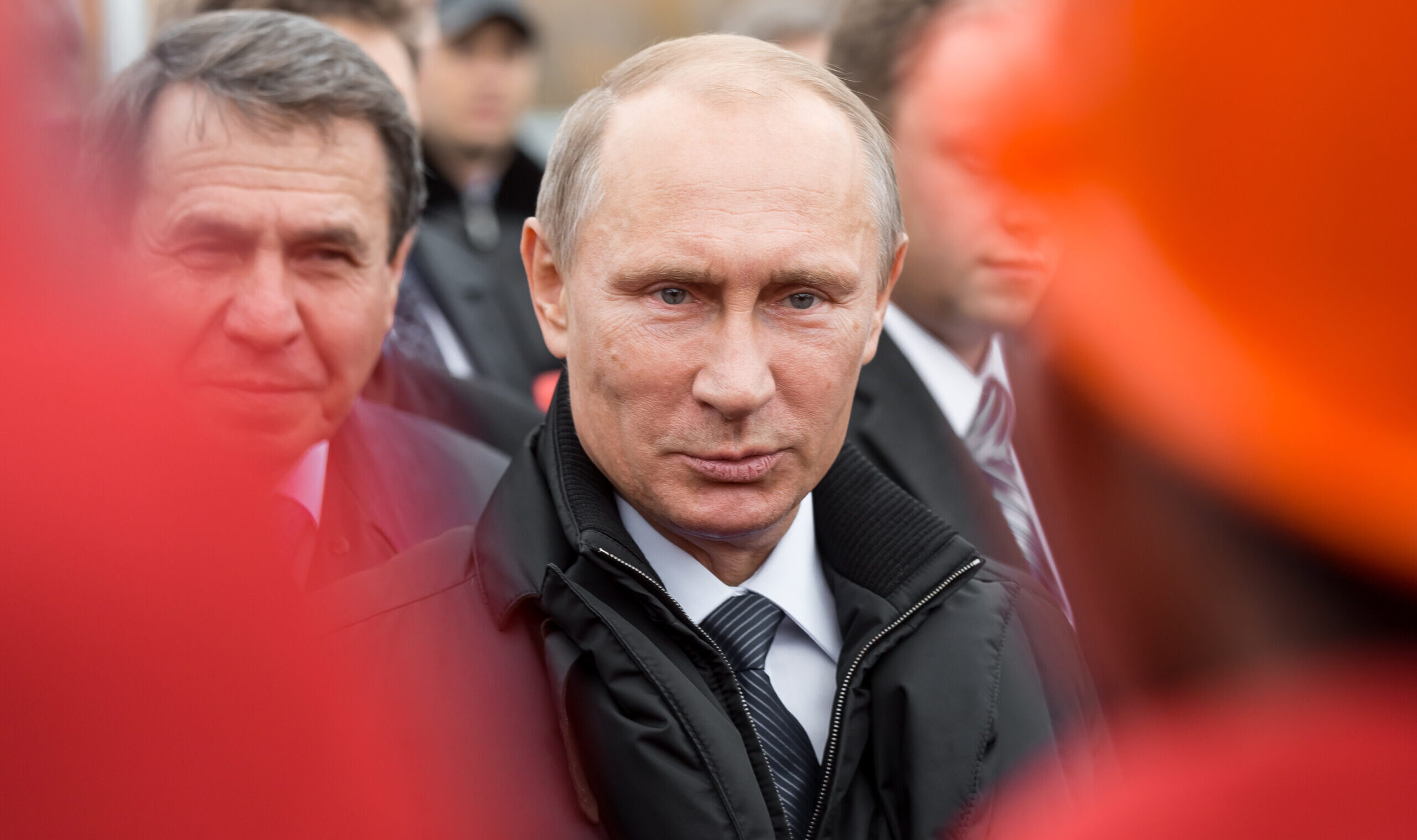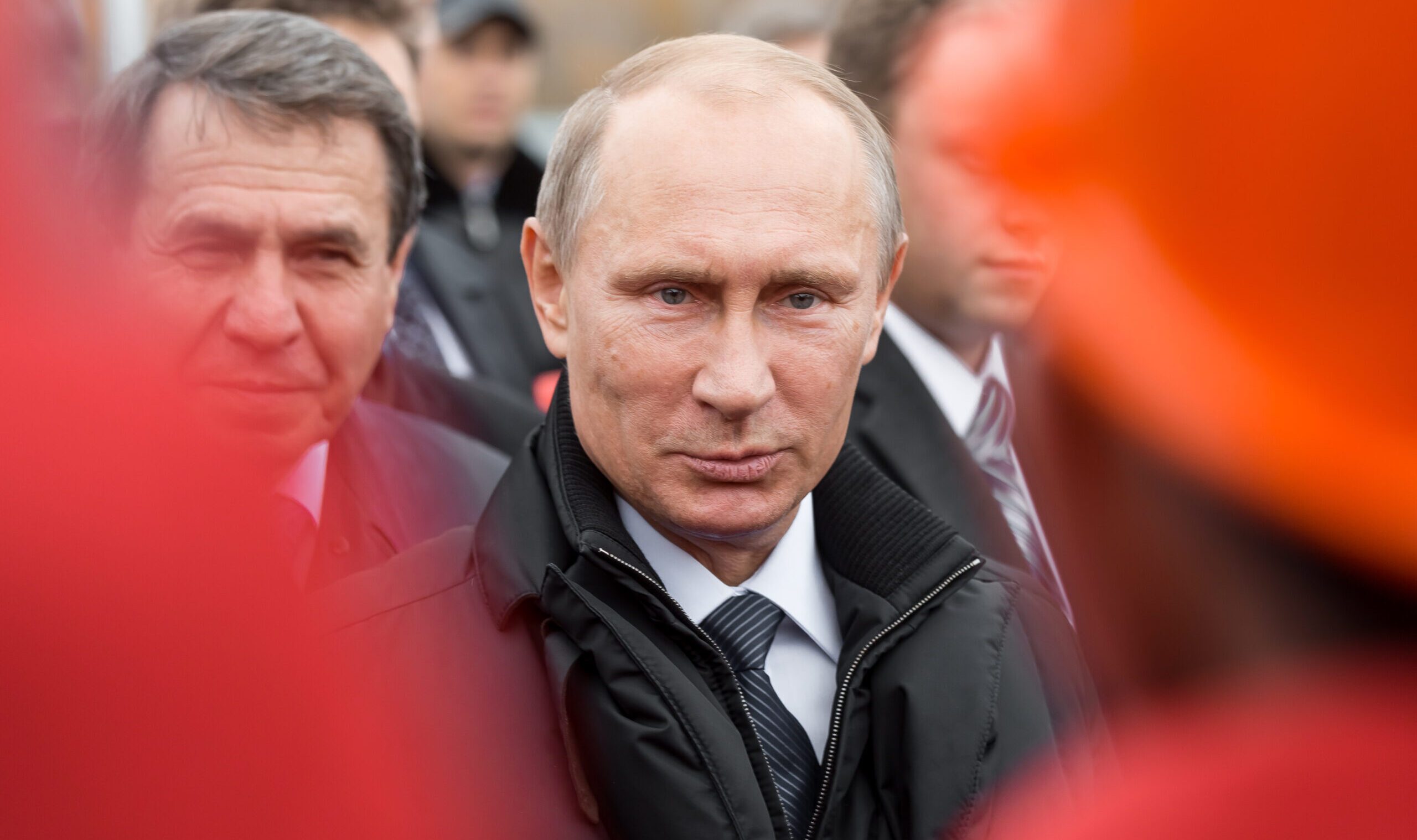Foreign Affairs
Foreign policy, and politics generally, is not primarily about good feelings.

Credit: Mr. Tempter
Anyone who watched Tucker Carlson’s interview with Russian President Vladimir Putin and saw only Kremlin propaganda is like a moviegoer who wants to join the Mafia immediately after seeing The Godfather or Goodfellas. They saw the cars, money, and glory, but somehow missed that nearly all the characters wound up dead or in prison by the end.
Of course, there are plenty of people who watch mob films and come away admiring the mobsters. And there is a small subset of conservatives who venerate Putin as the Ronald Reagan of Viktor Orbans, or at least a Tony Soprano–like antihero telling the globalists to fuggedaboutit.
Anyone who paid close attention to Carlson’s interview with Putin came away seeing the Russian leader as a ranting maniac who, whatever his concerns about NATO expansion, has some expansionist fantasies that are in part driving his costly and brutal war in Ukraine. This was done without Carlson engaging in the histrionics of an MSNBC personality grilling a Republican senator, who, to that audience, is nearly as bad as Putin himself.
Carlson’s critics shifted the goalposts afterward. They predicted he would not press for the release of imprisoned Wall Street Journal reporter Evan Gershkovich. When Carlson did exactly that, they said he did it too late in the interview or mocked him for appealing to Putin’s “decency.”
Carlson did not advocate for Gershkovich in a way that was most emotionally satisfying, but he did so in terms that had some small chance of actually securing the reporter’s release. That ought to count for something if the objective is obtaining Gershkovich’s freedom rather than feeling good about oneself. And Putin does not come off well in the exchange.
But the people most incensed about Carlson’s interview do not watch mob movies. They instead think the West Wing is a documentary and wanted Carlson to be the Martin Sheen of Ronald Reagans, delivering a cinematic denunciation of Putin that would make them feel good even if it accomplished nothing.
This is the problem with U.S. policy on Ukraine in general. It is more concerned with high-minded moralist rhetoric than determining what is in our national interest or actually happening on the ground in Ukraine. It is no feel-good story, regardless of Putin’s resemblance to a villain out of central casting and Volodymyr Zelensky’s to a Hollywood leading man.
Nikki Haley says we can support Ukraine indefinitely at a minimal cost to ourselves, a preventive war to prevent all wars. “This is about preventing war—it’s always been about preventing war,” she said at a Republican presidential debate. “If we support Ukraine, that’s only 3.5 percent of our defense budget.” But there is, in fact, a war going on right now.
President Joe Biden has sounded a similar refrain, suggesting he can perfectly thread the needle between confronting Russia without getting dragged into the war ourselves. Yet as Nucky Thompson in HBO’s Boardwalk Empire was admonished that he could not be “half a gangster,” it is difficult to be half a wartime president.
Sometimes proponents of this policy seem confused about the objective. Is it about liberating Ukraine and defeating the Russian invaders? Or is the point a protracted fight that degrades Russia’s military? Is there not some tradeoff between these two goals that can be measured in Ukrainian lives?
Is it really true that what we are currently doing makes a NATO war with Russia less likely rather than more? Would admitting Ukraine to NATO make such a war more or less likely?
There are useful things that can be learned from talking to Putin, but these are questions that need to be asked of Biden. Someone should, but he is apparently not taking many interviews at this time. Enjoy the Super Bowl!
Subscribe Today
Get daily emails in your inbox
The war in Ukraine has become a quagmire for a few simple reasons. Ukraine matters more to Ukrainians than it does to a ragtag band of Russian conscripts; Ukraine matters more to Russia, and certainly Putin’s government, than it does to the United States and its allies arming Kiev.
Until these basic realities are accepted, it is impossible to have an intelligent conversation about Ukraine policy. Does anything Russia has managed to do in Ukraine make it seem like Moscow could realistically threaten NATO territory? If the answer is no, but its nuclear arsenal must be taken seriously, what are the limits of what the U.S. and its allies are willing to do for Ukraine? And what does a realistically attainable and just peace for Ukraine look like?
That may not make for good television, which is why a small number of contrarians would rather watch the Putin Show and most of the people who actually make decisions in Washington prefer the Zelensky Show. But it is the beginning of a realistic, rather than feel-good, foreign policy.
